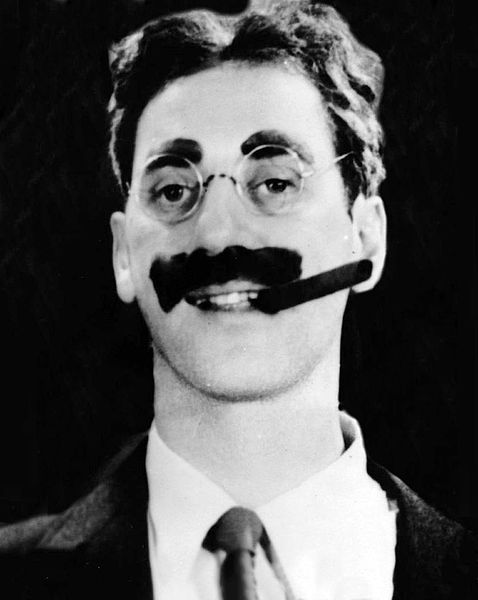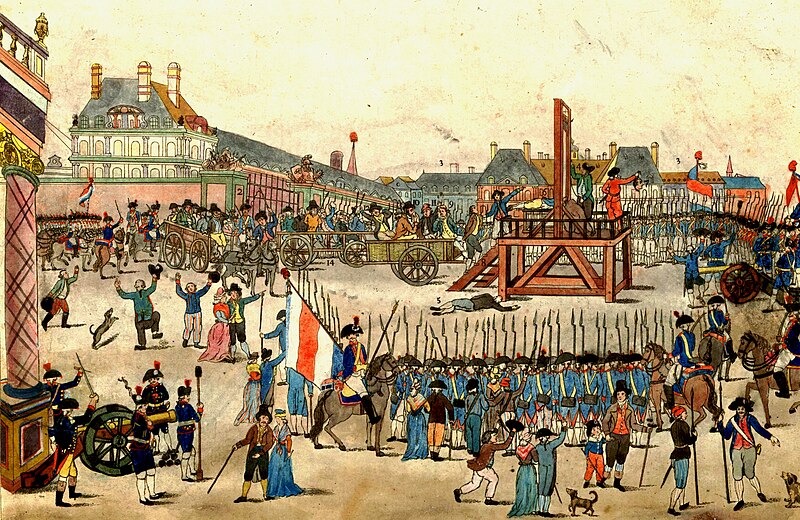Anaphora Literary Press invites submissions of full-length manuscripts of fiction, nonfiction, and poetry; there is no submission fee and it reads year round. For more information and guidelines for submissions, go here.
* * * * * *
Recently I read that, for a final gesture, Mata Hari, the exotic dancer whom the French executed in 1917 as a German spy, blew kisses at the firing squad just before they fired. Legendary femme fatale as she supposedly was, Mata Hari was perhaps not even a spy; needing money, she took cash from the Germans for useless information that was already known. But what struck me about the anecdote was how charming and courageous her last gesture was, which in turn set me to thinking about last words and final gestures of other people, and what they said about those people and their society. Hence this post. Granted, many of these citations may be more legendary than factual; only those reported by trustworthy eyewitnesses are beyond doubt.
* * * * * *
Recently I read that, for a final gesture, Mata Hari, the exotic dancer whom the French executed in 1917 as a German spy, blew kisses at the firing squad just before they fired. Legendary femme fatale as she supposedly was, Mata Hari was perhaps not even a spy; needing money, she took cash from the Germans for useless information that was already known. But what struck me about the anecdote was how charming and courageous her last gesture was, which in turn set me to thinking about last words and final gestures of other people, and what they said about those people and their society. Hence this post. Granted, many of these citations may be more legendary than factual; only those reported by trustworthy eyewitnesses are beyond doubt.
 |
| In 1906, in all her glory. |
 |
| Statue of Nathan Hale at the CIA headquarters in Langley, Virginia. |
I grew up on stories of heroic Americans whose last words
were memorable. Nathan Hale, the
American schoolteacher hanged by the British as a spy in 1776, declared, “I
only regret that I have but one life to lose for my country.” But did he really
say it? Possibly, but the British
officer who described Hale’s courage and composure did not mention it.
 |
“Don’t give up the ship!” were the dying words of Capt.
James Lawrence, whose frigate Chesapeake was
disabled by fire from the British frigate Shannon
in an engagement outside of Boston on June 1, 1813. Yes, he really said it, but alas, a British
boarding party overwhelmed his crew and captured his disabled ship. A flag with the words “Don’t give up the
ship” stitched in it was flown from the USS
Lawrence, the flagship of Capt. Lawrence’s friend Oliver H. Perry, in
Perry’s victorious fight with a British squadron on Lake Erie on September 10,
1813, and the original flag is now displayed at the U.S. Naval Academy Museum
at Annapolis, Maryland.
On his deathbed John Adams, second president of the U.S.,
murmured “Jefferson” or “Jefferson survives.”
Longtime political opponents, he and Thomas Jefferson, third president
of the U.S., had later reconciled and carried on a lengthy correspondence. Both had signed the Declaration of
Independence on July 4, 1776, and both, the last surviving signers, managed to
die on July 4, 1826. In Massachuetts,
however, Adams was unaware of Jefferson’s death in distant Virginia five hours prior
to his own, and so thought Jefferson the survivor.
While we’re dealing with politicians, how about Winston
Churchill, who saw Britain through the darkest days of World War II? What were his last words? Rather different from those just mentioned:
“What a bore it is!” He was departing
this earth slowly, and found prolonged incapacity alien to his temperament. This is one of two Churchill quotes that I
love. The other came near the beginning
of his career in Parliament: “But that’s detail work. I don’t do detail work!” How wonderful it must be, to hand detail work
over to some obliging flunky. He
presumably did it all his life, while busying himself with grandiose policy
issues and matters of state.
The Archduke Franz Ferdinand and his wife Sophie, on being
shot by the young Serb assassin Gavrilo Princip at Sarajevo in 1914, remained
sitting upright in the limousine while being driven to the governor’s residence
for medical attention. Mortally wounded,
the archduke begged his wife to live for the sake of their children, and then,
when asked about his injury, replied several times, “Es ist gar nichts” (It is
nothing). Which didn’t keep him from
dying, or World War I from breaking out, triggered by his assassination.
 |
| The Archduke and his wife leaving the Sarajevo guildhall, where he had made a speech. They then left in the open car and, minutes later, were shot. Karl Tröstl? |
Now how about the two famous Marxes, because, oh yes, there
were two. The last words of Karl Marx, author
of the Communist Manifesto and so
much more: “Last words are for fools who haven’t said enough.” And the other Marx, Groucho: “This is no way
to live.” As for his brother Harpo, the
consistently mute harpist who spoke not a word in films, if he spoke any last
words, I haven’t found them; hopefully, he kept in character and didn’t.
 |
| One of the Marxes. |
 |
| The other Marx. |
Groucho wasn’t the only one to inject a note of humor. Oscar Wilde, dying of meningitis, reputedly
said, “My wallpaper and I are fighting a duel to the death. One or the other of us has got to go.” The wallpaper, it seems, won out. But the quote has been questioned, since it
was reported later by friends; no one witnessed it at the time of his
death. (A familiar problem with reported
last words.)
Last words became something of a tradition in England back
in Tudor times, when public beheadings were popular entertainment, and the
scaffold provided a wonderful farewell stage.
Condemned for adultery, Catherine Howard, Henry VIII’s fifth wife,
humiliated Henry by announcing, “I die a Queen, but I would rather die the wife
of Culpepper.” Culpepper, too, lost his
heart and then his head.
The French Revolution prompted many a memorable utterance
either on the scaffold facing the guillotine, or in the tumbril en route to it. The noblest of them all was probably that of
Madame Roland, a Girondin moderate among
the revolutionaries, who was eliminated by Robespierre and his Jacobin crew:
“O liberté, que
de crimes on commet en ton nom!”
Oh Liberty,
what crimes are committed in thy name!
When betrayed and condemned by Robespierre, Danton, no
innocent, conducted himself with dignity on the scaffold. His last words were to Sanson, the
executioner: “Show my head to the people; it is well worth showing.” And Sanson no doubt did just that, it being
customary.
 |
| Maximilien de Robespierre, a portrait circa 1790. The Incorruptible, elegant, his jaw still intact. |
Robespierre too, the so-called Incorruptible, was fed to
Madame la Guillotine, for the Revolution ended by devouring its own. In 1794 the day of his downfall came and he
attempted suicide, but only managed to shoot himself in the jaw. When he was delivered, bound securely, to the
executioner, Sanson pulled his coat off and then, in a needless act of cruelty,
snatched away the dirty linen binding his lower jaw, which then fell open, at which
point Robespierre uttered a piercing shriek, hideous to hear: “Sanson, you
cannot be too quick!” With the fall of
his head into the waiting basket, and its display to a cheering crowd, the
Reign of Terror came at last to a bloody end.
 |
| Robespierre's execution, July 28, 1794. The executed man is not Robespierre, who, dressed in brown and wearing a hat, is seated in the cart nearest the scaffold.. |
And the royal victims of the Incorruptible? When the dethroned king, Louis XVI, mounted
the scaffold and let his hands be tied, he addressed the crowd: “Frenchmen, I
die innocent. It is from the scaffold
and soon appearing before God that I tell you so. I pardon my enemies; I desire that
France—” At this point a general on
horseback commanded, “Tambours!” and
Louis’s voice was drowned out by a roll of drums. Sanson’s blade fell, and the ex-king’s head
was shown to the crowd, inciting shouts of “Vive
la République!”
 |
| Louis XVI's execution. A German engraving of 1793. After this, for the Revolution there was no turning back. |
Marie Antoinette’s last words were of a humbler sort. “Excuse me, sir, I didn’t mean to,” she said
to Sanson, having inadvertently stepped on his toe. Her head too was shown to the populace, likewise
inspiring cries of “Vive la République!”
What became of the executioner Sanson? Did he too fall victim to the guillotine? First of all, it must be stated that there
were two executioners with the name Sanson.
The father, Charles-Henri Sanson, executed Louis XVI, Danton, and
Robespierre, but his younger son and apprentice, Henri, executed
Marie-Antoinette and later succeeded his father as the official executioner of
Paris. Father and son came from a long
line of executioners that stretched back into the ancien régime. The father,
whose diary reveals a humane man usually anxious to spare his victims
unnecessary suffering, survived the Revolution and died in 1806. In 1792 his older son and presumed heir,
Gabriel, died after falling off the scaffold while displaying a severed head to
the crowd. The father was obviously more
sure-footed, as was his son Henri, who served as executioner of Paris for 47
years.
And Napoleon and Josephine, who were spared the
horrors of the scaffold and the niceties of the Sanson clan? Josephine, divorced by him so he could marry
the Austrian princess Marie-Louise and have a son and heir by her, is said to
have murmured, “Napoleon … Elba … Marie-Louise …” And Napoleon, dying in exile on Saint
Helena? “France … armée … tête d’armée [head
of the army]… Joséphine …” A true love
affair, it would seem.
 |
| Max von Schwartzkoppen in 1895. |
Another military man much involved in French history was Maximilian
von Schwartzkoppen, the German military attaché in Paris in 1894, when Captain
Alfred Dreyfus was convicted of selling military secrets to the Germans and sentenced
to life imprisonment. Doubts about his
guilt arose, and the nation was divided by the resulting controversy. Years later, on his deathbed, von
Schwartzkoppen exclaimed, “Frenchmen, Dreyfus is innocent!” Knowing the real culprit was a Captain Esterhazy,
he had longed to proclaimed Dreyfus’s innocence at the time of his trial, but
was silenced by his superiors, who saw a France rent apart by controversy as in
Germany’s best interests. Only on his
deathbed in 1917, with World War I raging, could von Schwartzkoppen at last
proclaim the truth.
 |
Let’s move on to some less unsavory characters and their
last words.
· The composer Gustav Mahler, conducting an imaginary
orchestra: “Mozart.”
· Goethe: “Mehr
Licht.” (More light.) A plea for more enlightenment? No, he just wanted more lamplight.
· The emperor Augustus:
“I found Rome made of clay, and leave her to you made of marble.”
Finally, we come to those dwelling in the higher realms of
philosophy and religion. Socrates,
condemned to die by drinking hemlock, tells his friends how decent the jailor
has been, and then, as recounted in Plato’s dialogue Phaedo, having drunk the hemlock, says to one of them, “Crito, we
ought to offer a cock to Asclepius. See
to it and don’t forget.” But what does
this mean? Since Asclepius, the mortal
son of Apollo, was a healer capable even of raising the dead, it is usually
taken to mean that Socrates saw death as a cure that released the soul from the
body.
 |
I have heard that Mahatma Gandhi, mortally wounded, blessed his
murderer, but I haven’t been able to confirm this.
|
The Buddha’s last words to the monks attending him: “I exhort you: all compounded things are
subject to vanish. Strive with
earnestness.” He then entered the
dimension of nothingness and finally was totally unbound, to fully grasp which
would require a deep knowledge of the Blessed One’s teachings.
Joan of Arc, being burned at the stake by the English: “Hold
the cross high, that I may see it through the flames!” Then, as the flames engulfed her: “Jesus … Jesus …”
For Christians, of course, the supreme last words are those
of Christ on the cross, as reported in the Gospel of John (19:30): “It is
finished,” meaning that he had completed his sacrifice for humankind, following
which he bowed his head and gave up the ghost.
In the Latin Vulgate this is translated from Greek as “Consummatum est,” which appears in many
inscriptions and in sacred art.
BROWDERBOOKS
All books are available online as indicated, or from the author.
1. No Place for Normal: New York / Stories from the Most Exciting City in the World (Mill City Press, 2015). Winner of the Tenth Annual National Indie Excellence Award for Regional Non-Fiction; first place in the Travel category of the 2015-2016 Reader Views Literary Awards; and Honorable Mention in the Culture category of the Eric Hoffer Book Awards for 2016. All about anything and everything New York: alcoholics, abortionists, greenmarkets, Occupy Wall Street, the Gay Pride Parade, my mugging in Central Park, peyote visions, and an artist who made art of a blackened human toe. In her Reader Views review, Sheri Hoyte called it "a delightful treasure chest full of short stories about New York City."
If you love the city (or hate it), this may be the book for you. An award winner, it sold well at BookCon 2017.
Review
"If you want wonderful inside tales about New York, this is the book for you. Cliff Browder has a way with his writing that makes the city I lived in for 40 plus years come alive in a new and delightful way. A refreshing view on NYC that will not disappoint." Five-star Amazon customer review by Bill L.
Available from Amazon and Barnes & Noble.
 |
2. Bill Hope: His Story (Anaphora Literary Press, 2017), the second novel in the Metropolis series. New York City, 1870s: From his cell in the gloomy prison known as the Tombs, young Bill Hope spills out in a torrent of words the story of his career as a pickpocket and shoplifter; his brutal treatment at Sing Sing and escape from another prison in a coffin; his forays into brownstones and polite society; and his sojourn among the “loonies” in a madhouse, from which he emerges to face betrayal and death threats, and possible involvement in a murder. Driving him throughout is a fierce desire for better, a persistent and undying hope.
For readers who like historical fiction and a fast-moving story.

Reviews
"A real yarn of a story about a lovable pickpocket who gets into trouble and has a great adventure. A must read." Five-star Amazon customer review by nicole w brown.
"This was a fun book. The main character seemed like a cross between Huck Finn and a Charles Dickens character. I would recommend this." Four-star LibraryThing review by stephvin.
Available from Amazon.
3. Dark Knowledge (Anaphora Literary Press, 2018), the third novel in the Metropolis series. Release date January 5, 2018, but copies now available from the author. Adult and young adult. A fast-moving historical novel about New York City and the slave trade, with the sights and sounds and smells of the waterfront. More excerpts to come.

The back cover summary:
New York City, late 1860s. When young Chris Harmony learns that members of his family may have been involved in the illegal pre-Civil War slave trade, taking slaves from Africa to Cuba, he is appalled. Determined to learn the truth, he begins an investigation that takes him into a dingy waterfront saloon, musty old maritime records that yield startling secrets, and elegant brownstone parlors that may have been furnished by the trade. Since those once involved dread exposure, he meets denials and evasions, then threats, and a key witness is murdered. Chris has vivid fantasies of the suffering slaves on the ships and their savage revolts. How could seemingly respectable people be involved in so abhorrent a trade, and how did they avoid exposure? And what price must Chris pay to learn the painful truth and proclaim it?
Early reviews
"A lively and entertaining tale. The writing styles, plot, pace and character development were excellent." Four-star LibraryThing early review by BridgitDavis.
"A lively and entertaining tale. The writing styles, plot, pace and character development were excellent." Four-star LibraryThing early review by BridgitDavis.
"At first the plot ... seemed a bit contrived, but I was soon swept up in the tale." Four-star LibraryThing early review by snash.
"I am glad that I have read this book as it goes into great detail and the presentation is amazing. The Author obviously knows his stuff." Four-star LibraryThing early review by Moiser20.
"I am glad that I have read this book as it goes into great detail and the presentation is amazing. The Author obviously knows his stuff." Four-star LibraryThing early review by Moiser20.
4. The Pleasuring of Men (Gival Press, 2011), the first novel in the Metropolis series, tells the story of a respectably raised young man who chooses to become a male prostitute in late 1860s New York and falls in love with his most difficult client.
What was the gay scene like in nineteenth-century New York? Gay romance, if you like, but no porn (I don't do porn). Women have read it and reviewed it. (The cover illustration doesn't hurt.)
Reviews
"At times amusing, gritty, heartfelt and a little sexy -- this would make a great summer read." Four-star Amazon customer review by BobW.
"Really more of a fantasy of a 19th century gay life than any kind of historical representation of the same." Three-star Goodreads review by Rachel.
"The detail Browder brings to this glimpse into history is only equaled by his writing of credible and interesting characters. Highly recommended." Five-star Goodreads review by Nan Hawthorne.
Available from Amazon and Barnes & Noble.
What was the gay scene like in nineteenth-century New York? Gay romance, if you like, but no porn (I don't do porn). Women have read it and reviewed it. (The cover illustration doesn't hurt.)
Reviews
"At times amusing, gritty, heartfelt and a little sexy -- this would make a great summer read." Four-star Amazon customer review by BobW.
"Really more of a fantasy of a 19th century gay life than any kind of historical representation of the same." Three-star Goodreads review by Rachel.
"The detail Browder brings to this glimpse into history is only equaled by his writing of credible and interesting characters. Highly recommended." Five-star Goodreads review by Nan Hawthorne.
Available from Amazon and Barnes & Noble.

Coming soon: Who knows? Maybe kinds of execution: how we do away with one another. Or big cities versus small, and who is thriving and who isn't. ???
© 2017
Clifford Browder

This comment has been removed by a blog administrator.
ReplyDelete